Moon: Remix RPG Adventure: Famitsu Switch Port Interview
Celebrating Announcement of "Moon" Switch Version! A Long Interview With Yoshiro Kimura & Kazuyuki Kurashima. Loads of Details, From Behind the Scenes of the Revival, To Changes, and That "Mythical Ending"
"Moon" was a game released for the PlayStation 22 years ago, on October 16th, 1997. Its genre is given as "Remix RPG Adventure."
The protagonist is a player who enters into the world of a game. He experiences the RPG he's always playing from within that world - a meta-fictional perspective that had a major impact on gaming fans at the time.
The tagline for the original release of Moon was "No more hero-ing." The protagonist, unable to leave this RPG world, adventures within said world to return to his own. Yet it gives the player such a perspective as to consider "isn't the act of killing a ton of monsters to level up actually kind of evil?", which made it something of a revolutionary game.
Despite this, Moon, for whatever reason, was never once ported, and copies of it came to be sold at exorbitant prices, making it a difficult game to get your hands on. But at last! Today! Moon was announced for release on Nintendo Switch! Hip hip hooray!
...And thus, we moved super-duper-emergency-quickly to conduct an interview with two key figures in the revival of Moon: Yoshiro Kimura and Kazuyuki Kurashima of Onion Games. Moon was created by developers who left Square (now Square-Enix) to create a new development studio called Love-de-Lic. One of its members was Kimura, who was central to Moon's development and oversaw the entire game. Kurashima is a designer who was in charge of the character designs.
Presently, these two are producing extremely unique works as part of Onion Games. We asked them about the backstory of Moon's current revival, troubles in the porting process, and what I'm sure everyone is wondering about: the question of changes and additional content.
Yoshiro Kimura
A traveler slash game designer. Representative director of Onion Games. While employed at Square (formerly), he was involved in Romancing SaGa 2, then afterward joined Love-de-Lic and was involved in developing Moon. Currently, he's gone independent and established Onion Games to release Million Onion Hotel, Dandy Dungeon, and BLACK BIRD. He also energetically holds a game-discussing broadcast known as "Pori-Pori☆Club."
Kazuyuki Kurashima
An illustrator and character designer. As pixel artist of Onion Games, he's responsible for all the pixel graphics in the studio's games. At Square (formerly), he worked on graphics for games like Super Mario RPG, then left the company and joined Love-de-Lic. Worked on character design for Moon. Provides his charming style to a broad array of clients, such as doing visuals for the popular Let's Players "Napolimens."
A "Miracle" Occurred
— Even now, I'm still a little shook up about the unexpected news that we'll be able to play Moon again. Why did this port come to fruition now?
Kimura: Actually, this experiment of "let's make Moon playable on modern systems"... is something I've been trying since ages ago.
— Ages, you say?
Kimura: In fact, it wasn't just me. It seems like maybe somewhere, on several occasions, somebody or another has been trying. But I hear they were always set back. Due to adult circumstances, maybe...
Kurashima: I've heard rumors of it about four times in the past decade.
— Various rumors about a port have been flying around in the past, like "they're working to sell it on a certain portable system"...
Kimura: ...I don't know anything about all that. I resolutely don't know about it. (laughs)
Kurashima: If you respond to it seriously, that just makes you look more suspicious. (laughs) Still, even at the livestreamed class reunion of Love-de-Lic devs held for Moon's 10th anniversary, there was already talk of a port.
— Well then, just how long have you been preparing this? In the background of Onion Games' releases of Million Onion Hotel, BLACK BIRD, and Dandy Dungeon, don't tell me you've been working on this port of Moon?
Kimura: Actually, I've been thinking about some things since long before I made Onion Games... *whisper*... were talking about doing it... and that company... *whisper*...
Kurashima: There's no point in whispering about secrets in an interview, is there?
— I can't really hear you very well, but I take it we can't publish that. (laughs)
Kimura: Yep. (laughs)
Kurashima: Thought so.
Kimura: So, in any event, while taking on various not-Moon challenges, I got to meet people. One day, two producers from KADOKAWA who love Moon came to Onion Games and began consulting with me. And after that, we consulted with Route 24's Nishi-san (Kenichi Nishi, a primary member of Love-de-Lic), and consulted with all the former Love-de-Lic members, and through lots of tedious communication, we came to a consensus. Overall, they leaned in the direction of "approval"... and I managed to get the OK. So I don't know what to call it but a miracle.
Kurashima: Right. Miracoh! (said like the voice that plays when you get a Miracle Combo in Million Onion Hotel)
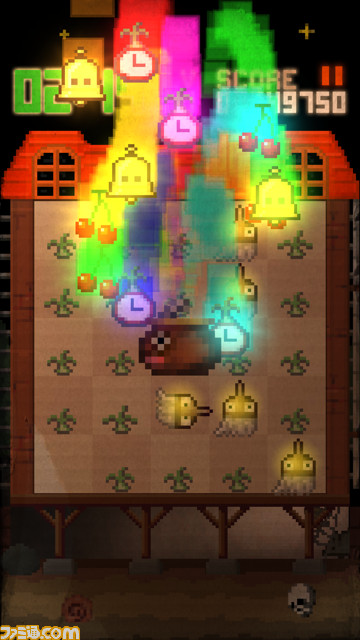
Off-topic, but this is a screenshot of getting a "Miracle" in Onion Games' puzzle game Million Onion Hotel. Alongside a voice saying "Miracoh!", many high-scoring items appear, and the player's heart is invited into space.
The Lost Source Code
— Since the original's release on the PlayStation, despite its praise as a legendary work, it's only gone up in price and become difficult to play anymore, as much as people may want to. As such, this port announcement is certainly something to be happy for.
Kimura: That's true. But well, look... We're a little contrarian, you know?
Kurashima: He said it himself. (laughs)
Kimura: So while I'm glad to hear people praise Moon, for a period of time, I kind of disliked being told "Moon's your only real masterpiece."
— Like the spotlight was only on your past exploits...
Kurashima: It was the rashness of youth. That's all it was.
Kimura: Yeah, those youthful 40's. (laughs) But you know, now, I guess I've come to no longer dislike it.
Kurashima: Finally, you've become an adult. (laughs) Until about 10 years ago, I didn't much care for that either.
Kimura: When you say 10 years ago, was that when you were doing the art on BLACK NIGHT SWORD?
Kurashima: I think so, maybe. At around that time, I started to think "you know, maybe I shouldn't let it bother me." Just be natural. Yoshi-chan kept letting it drag on for a little longer.
Kimura: Basically, I was working hard to produce something that surpassed Moon and overcome it. Because I didn't want to hear "your old game was more interesting." That's how I thought for a long time. But I believe right around winter break in December 2017, while releasing new games as Onion Games, I decided I'd replay some games my past self had made. Every day after coming home, I'd sit down and start playing.
— Ah... I do feel like I read a column like "I'm playing through Moon right now" in Onion Games' email magazine, Peeping Tom Club.
Excerpt from Onion Games' official email magazine "Peeping Tom Club," written in 2017. Indeed, it seems he's actually playing it! If you'd like to subscribe to the magazine, try accessing http://oniongames.jp/club/...!
Kimura: I wrote my thoughts on Moon in the magazine while playing. I also re-examined other games I worked on, like Chulip, Rule of Rose, and Little King's Story, and felt different things about them too... I became interested, like "past me was pretty neat too, huh?"
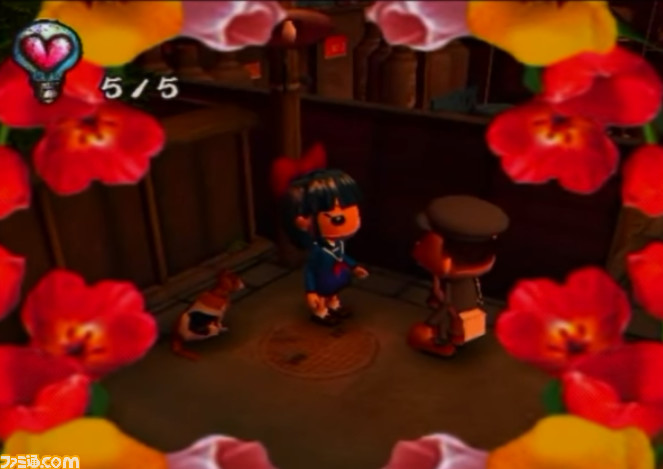
Chulip, a strange adventure about smooching a girl set in a retro-Showa town.
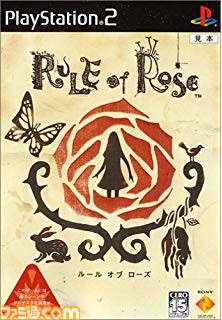
Rule of Rose, a horror game where you can experience the beauty and danger of girls and children.
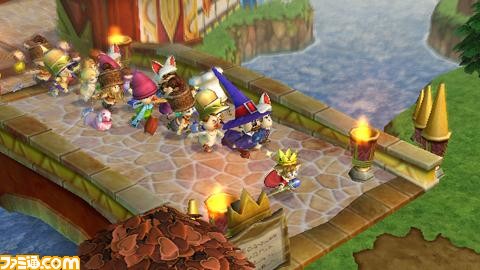
Little King's Story, a story about a boy who puts on a strange crown, is able to command absolute power, and becomes a king. A colony action RPG where you guide your country and people, and fight against strange foreign lands.
Kimura: We can now ask ourselves, "Are we making things even more interesting than Moon?", and have the sense like "There's my past self, and there's Onion Games now which extends from there." We can say there's a lot of things that are better about our present selves, and at the same time, affirm the merits of our then youthfulness, and the crudeness of youth.
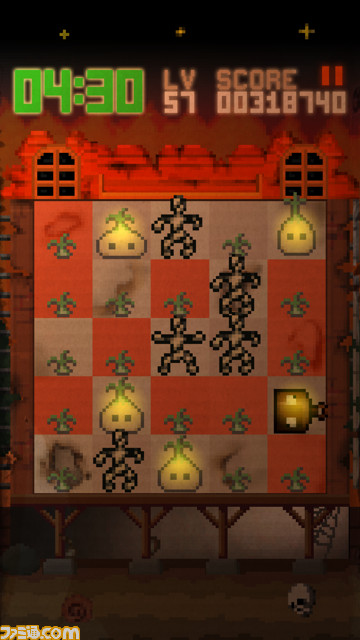
Million Onion Hotel, Onion Games' Bingo-like puzzle game. It also features a strange, charming story about a hotel famous for its soup that makes you happy, and a missing person case revolving around it. Incidentally, about the characters on this screen... They resemble the Kakunte, who Moon fans will be familiar with, and there are actually several characters who resemble ones from Moon. Check the game out if you're interested!

A girl who meets an untimely demise becomes a calamitous black bird and attacks people in this shooter. Features horizontal looping stages and bombs, and addictive to play for high scores.
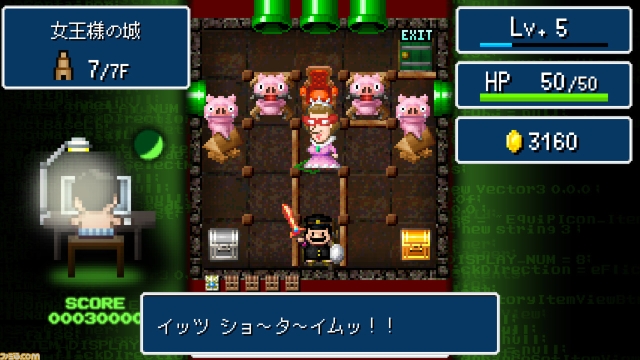
An RPG about Yamada (age 36), who liberates himself from a famous game company to develop his own games. Features a unique system where you explore dungeons by drawing strokes. In addition to the fun of a roguelike RPG full of items, the story is a must-see, with a protagonist who, as if expressing his mental world through games, implements the girl he likes into his game as a princess, and has the pure intention of saving and marrying her.
Kurashima: Because we were youngsters.
Kimura: Even looking at what I wrote back then objectively... it's just so unique and interesting. (laughs) As I went replaying them like that, I came to not be bothered when people talked to me about Moon.
Kurashima: You lost your youthful rashness.
Kimura: (laughs) And so, at that very time, for some reason I unearthed some Moon planning documents, and notes from back then, and other data in my house...
— Wha?!
Kurashima: Like a fateful reunion. In fact, maybe it's because I take good care of my stuff, but I also went looking at that time, and found illustration data related to Moon.
— That's incredible timing, for two of you involved in development to unearth a bunch of Moon data. Come to think of it, I've been meaning to point it out, but Kurashima-san is wearing a Moon T-shirt.
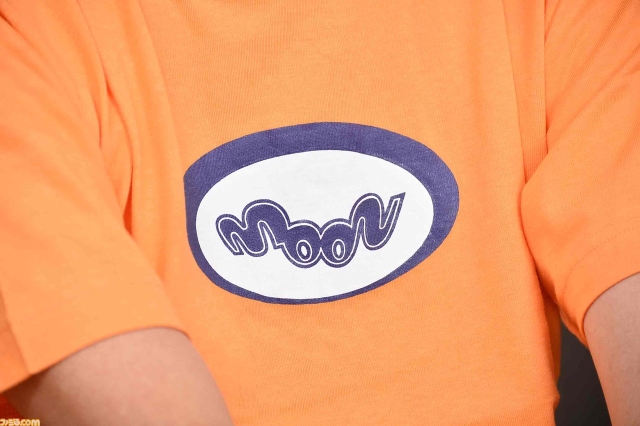
Regardless of being in the middle of an interview, I caught a glance of this T-shirt. Apparently it's some treasured article.
Kurashima: Oh, this T-shirt also popped out when I went searching. It's over 20 years old, and I never once took it out of the bag, so the print was stuck to it, and nearly got ripped off.
— By the way, Kimura-san, your T-shirt is also Love-ly. (laughs)
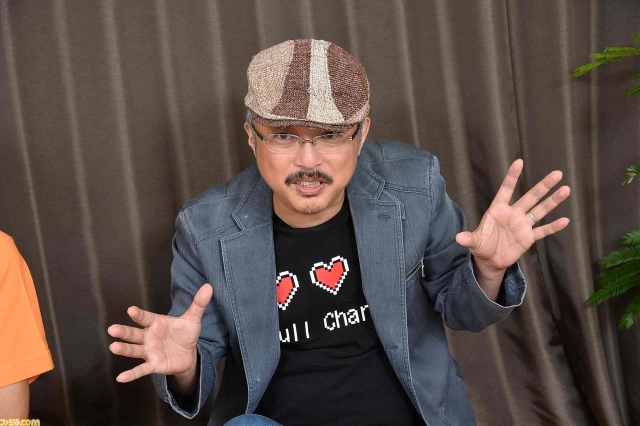
Kimura wore a heart T-shirt as if to represent Moon, in which you grow by gathering not experience points, but Love. That is Love, this too is Love?
Kimura: Hahaha. (laughs) Anyway, in this way and that, we discovered rubble from the past related to Moon. ...But there was something else that was truly the ultimate impetus to flip on our motivation switches.
— What could that have been?
Kimura: One day, a former Love-de-Lic colleague discovered, somewhere, the source code for a "near-final" version of Moon.
— Amid all that, the finalized source code for Moon cropped up?!
Kimura: Yes, one day I heard from KADOKAWA, "We found a hard drive with the final version on it!" So I was like, "let's analyze the source a little, shall we?" The rediscovery of this source code was unmistakably the biggest reason for Moon's revival.
— It sounds kind of like a huge archaeological find.
Kimura: Yep. It felt like this got the engine started. I inspected it over and over, and was like "maybe we can actually do this?" Talk about a port in the past always had the difficulty of "Should we do it? Can we?" But then, we came upon the original data.
— I see.
Kimura: Also, maybe the progression of things to that point was kind of predestined too. Right around the time we released Million Onion Hotel, Den-Fami Nico Gamer published a round-table discussion for Moon's 20th anniversary. There, since the members were able to gather in one room and talk, the desire to play Moon again heightened, so I think it was very significant. Den-Fami's Koyama-san (currently part of Famitsu editing staff) organized everything super well, so we wanted everyone to share in the goodness of Moon anew.
Kurashima: This also goes for the Love-de-Lic 10th anniversary event, but it's not often we get the chance to all gather together, so maybe that was important. We can only get talking about Moon in a circumstance like that.
To Respond to the Love-Pressure
— Earlier, you mentioned you used to dislike being told Moon was your masterpiece, but I'm sure you've heard many people wanting a port. I'm sure of it.
Kimura: I've heard the voices requesting a revival of Moon. For a long time. (laughs) That's just the Love-pressure from all our fans that comes our way.
— "Love-pressure" is quite the term. (laughs)
Kimura: Everyone's Love for Moon, it's intense. It's massive.
Kurashima: When Onion Games holds events for Dandy Dungeon and such, the fans sometimes bring presents, but they often accompany it with a comment of "I want to play Moon, but I can't."
Kimura: I've had copies of Moon brought to me to sign.
— Come to think of it, in an earlier Famitsu interview between UNDERTALE's Toby Fox-san and Kimura-san, I recall Toby-san brought a copy of Moon to have signed. (laughs)
Kimura: That's right, that's right, I also signed for Toby-san. (laughs)
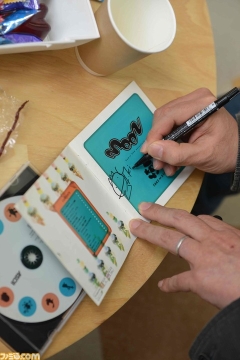
A signing of Toby's own copy of Moon!
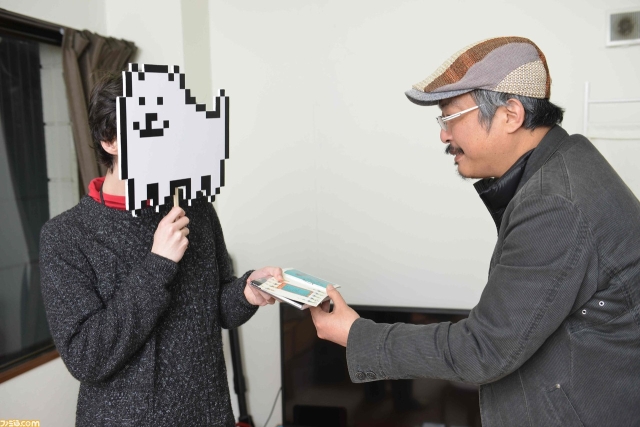
We took this photo. He's only accepting it with one hand because he has to hold his mask. Just in case.
Kimura: But you know, we were kind of contrarian, and many people knew we had a negative stance on making a Moon 2 or anything. So with each successive event, the fans must've caught on and stopped asking "please make a port," "please remake it."
Kurashima: Must've.
And this is the end-of-year Peeping Tom Club challenge, the Development Diary Special.
Today's entry...
December 14th
"Making a Game Like Moon"
Today I'll answer a frequent request and talk about whether I could make "that" or not.
You see, I recently talked with Toby Fox, and was filled with an intense desire to make an RPG.
I've started talking to Kurashima about it often over lunch. Honestly, I'm envious of UNDERTALE. (laughs)
That's right. We'd like to make a sandboxy adventure ourselves.
Hmm... But we probably won't be able to make a Moon 2."
Kimura talking about how Moon 2 won't happen. Excerpt from a 2017 Peeping Tom Club email.
Kimura: There's been a looot of that formless, "gentle" pressure.
— Gentle, yet still pressure. (laughs) But as those feelings of the fans have piled on, did it become a heavier pressure before you knew it?
Kimura: Hmm. I'm glad about it, of course, so I wouldn't call it a heavy burden. I wonder... It was "on my mind," I'd say.
Kurashima: It was a common refrain at events in the early days of Onion Games. At more recent events, the fans might have caught on, though, so it lessened.
Kimura: But occasionally, an "I really want to play Moon again on modern consoles" would slip out. When I heard that, I thought "yeah, who wouldn't."
— Now, those fans' requests have finally borne fruit.
Kimura: It's a miracle and all. So we got to work on the port saying "we'll bring them something as identical to the original as possible."
Like Repairing a Painting
— If you had the nearly-finalized data and the original source code, was porting smooth?
Kimura: Well, though we say we found the source, it wasn't even remotely as if we could port it just like that. And also, we had to think about what form to port it in.
Kurashima: And whether to treat it as a game of this era and fiddle with it.
Kimura: There was also the option of making it HD or adding a bunch of additional content. But we felt we should listen to the people saying "I want to play Moon just as it was then." We thought Moon in all its roughness was what we needed to put out.
— Did you deliberate over that a fair bit?
Kimura: Yes, after a lot of consideration, we decided "it's fine as it is" and went with reproducing Moon as it was then. We came to that consensus with the former members of Love-de-Lic; they also supported the idea of releasing it just like that.
— And so, you'll be able to play Moon just the way it was on Nintendo Switch. To think the long-unarchived Moon can be played again...!
Kimura: But while it's easy to say "reproduce Moon as it was on Nintendo Switch," you can't just use the exact same source code and art and music files... It was rather difficult. We at Onion Games had developed BLACK BIRD and Dandy Dungeon for Nintendo Switch, so we chose to release it there, it being a platform we were accustomed to. But the original game was for PlayStation, so the hardware works differently, and accommodating for that was a ton of work. At first, we looked into whether we could just use the PlayStation-era code in a modern development environment.
Kurashima: You were at that for a while. (laughs) About all I did was look at things related to the art data, but Yoshi-chan was doing all sorts of trial and error with our engineers in parallel with other development work for Onion Games.
Kimura: Ahaha... It was physically taxing juggling all that. (laughs)
Kurashima: You're not so young anymore, you know. Even if you may have felt like a youngster full of rashness.
Kimura: After lots of tedious experimentation, just as I thought "ah, I think it worked!", I finally noticed that actually, parts of the data were missing. I was like, yikes. (laughs)
— Oh dear... Was the graphical data okay?
Kurashima: There weren't any major issues, but it was a disgrace, like having to wipe my past self's butt. When looking over the illustration materials, I noticed a lot of rough spots that weren't extracted properly. I'm carefully repairing them now. It feels like using sandpaper on a plastic model I made ages ago. I'm angry with myself, like "Do it properly, past me!" (laughs)
— (laughs) But really, thinking you unearthed the complete data, then finding out part of it vanished during the long years...
Kimura: Honestly, I don't know what caused it. There were a lot of details indicating to me "Ahh, this is the final version," yet for some reason parts were missing. Maybe it was an error while making a backup copy, or a fundamental reference error, or someone forgot to include certain things? That's what I'm suspecting. So there was indeed a need to actually replay the game and look carefully at its contents to confirm how it was made. If we didn't have the cooperation of a mighty programmer who was well-versed in PlayStation-era programming as well as having modern savviness, I imagine it would've been difficult.
Kurashima: We called that programmer "the bodyguard professor" or "senpai," and when things got bad, we'd be like "let's try asking the Professor."
Kimura: Maaan, I'm so glad we met. The power of our "senpai" was truly amazing... Restoring missing graphics from the binary data, creating the same circumstances just by eyeballing it, working with us to come up with alternate solutions to things that were functions of the PlayStation hardware, and brilliantly resolving them. In the end, the restoration was a success. Truly, it's all thanks to our senpai. (laughs)
What Changes and What Doesn't Change
— It's like you were repairing a painting, using all sorts of methods to recreate the missing parts. To think you were conducting these experiments while also making Dandy Dungeon...
Kimura: It was difficult beyond imagination. But I think out of all the former Love-de-Lic members, maybe it's best that this hard work fell upon me.
Kurashima: Since you were the only person in Moon's development who saw the whole thing.
Kimura: Back then, too, I was the sort to get a top-down view of everything. So when I was looking at the final version backup, I was able to re-understand the whole structure and go like "oh, this might be doable." I even knew what the scripts written by other members meant, so the goal was in sight. It was lucky.
— Because of your goal to make a perfect recreation of Moon, you're able to make it as close to the original as possible.
Kimura: If you want to know how exact it is, I'll say that while we identified some bug-like phenomena from the original, once we identified the cause, we left it in as long as it didn't cause actual issues with the game.
— Wow, it's that much of a reproduction! Truly, then, the Nintendo Switch version will be a direct revival of the original. In turn, I suppose there isn't any additional content?
Kimura: Moon fanatics may be familiar with the "Dragon's Road," a mythical ending that was scrapped and never appeared in the game. Said Dragon's Road was an element we were considering adding to this port until the very end. But ultimately, we chose to not include it and keep it as it was before. We also considered having it in a form like DLC, but we decided against it.
— The "Dragon's Road" was a separate ending, wasn't it?
Kurashima: Even back then, we were briefly like "it'd be a waste, so what if we leave it in as a sub-story?"
Kimura: Right. But it'd be superfluous and make the main story weird, so we quickly discarded that. Surprisingly, we didn't agonize over the decision. It was just erased. We worked a ton on it, and the sound and art was there, and yet... Sorry.
— You made the same decision now as you did then.
Kimura: The original version of Moon is its complete form. So we wanted to not add or subtract anything from it, and just let everyone play it again. ...Oh, but there was a very slight change.
— In what part?
Kimura: It's not related to anything major, but MDs (Moon Disks, which allow you to play your favorite songs while adventuring) were changed a tiny bit. In the original version, due to size constraints, they were monaural, but in the Nintendo Switch version you can hear them in stereo. I think walking the overworld and feeling the vastness of the sound will make things even more fun. (laughs)
— The genres of the MD songs are pretty diverse, and being able to make your own playlist of your favorite tracks to adventure to... It's a pretty novel system, even looking back now. I'm curious to hear what tunes like the Tsugaru Folk Song-esque "Moonlight Folk Road" will sound like.
Kimura: Right? Aren't Tsugaru-shamisen great? Also, it generally runs at 60 frames, so it's smooth. So it feels kind of nice. The map transitions are fast too.
Moon, Created in Ad-Lib Sessions
Kimura: I mention this from time to time, but when I quit Square (now Square-Enix), I was thinking to myself, "I'm giving up on making games." So my joining of Love-de-Lic was initially pretty passive. I believe in the first month after development began in a Shinjuku apartment, Taro-chan (Taro Kudo, one of the three game designers on Moon) invited me like "be sure to at least show your face before you go on a trip." And after that, I went on a trip. So basically, I popped in at the start, but then I suddenly vanished. (laughs)
Kurashima: After Yoshi-chan's trip, he came back and joined Love-de-Lic in full force, a little delayed from the start of development. If he hadn't come in then, I'm sure Moon wouldn't have been completed.
Kimura: Around 4 months after development began, it felt like we were earnestly starting on it together. I returned there thinking "Let's get serious and make a game!", so I suppose I was desperate to finish it...
— Is that so...! Come to think of it, you all shared a former employment with Square. You were with an established developer of RPGs, then went on to prod at the RPG genre itself with Moon.
Kurashima: Me and Taro-chan quit Square after working on Super Mario RPG, then joined Love-de-Lic.
Kimura: I was elsewhere with the Romancing SaGa team, but I went to lunch with those two, and we had contrarian chats about RPGs. Like "Heroes going in people's houses without permission and fishing through their drawers - if you think about it, that's weird, right?"
Kurashima: Our meeting at Square up to when we made Moon was roughly the span of FFV to FFVII, I think.
Kimura: Because we worked smack dab in the middle of Square, a mainstream company, I think that's why we had both a love for and a rebelliousness toward Dragon Quest and Final Fantasy.
— After leaving Square, you developed a game with a "Love and rock-and-roll" spirit toward RPGs.
Kurashima: We certainly were rebellious then. Our development style would also be pretty unthinkable now...
Kimura: ...I'll borrow Taro Kudo's words. Moon was made a lot like how a band operates. Like a jam session with no sheet music. And terrifyingly, no specifications. (laughs)
— What?!
Kurashima: Yeah, there was nothing. (laughs)
Kimura: Everyone would ad-lib it, like a live band, just independently making the things they were in charge of, suuuuuper roughly. In the end, we'd piece it all together into a finished product. It was a form of development that'd be inconceivable these days.
— It's like you had no time for rehearsal, and figured out how to combine the parts of the giant robot on the fly...!
Kimura: Yes. But also, maybe we knew that was kinda bad, and that in turn made us work frantically at it. I somehow thought up the overall structure of the game, and the story connections, and other details. Ultimately, I'm truly glad Yoshida (one of the characters in the game) came out of my head.

Yoshida, a bird who talks in a Kansai dialect, and a deeply memorable character in Moon. Incidentally, a storybook with him as the narrator was sold, called Dumbass Bird of the Moonlit Night.
Kurashima: Hahahaha. But yeah, it wasn't something to laugh about. (laughs)
— That must've been a troublesome situation.
Kimura: But I think it was good in its own way. There was an air of freedom at Love-de-Lic. I think that's why sides of me that couldn't bloom at Square could bloom there and be included in Moon. In that room with Taro-chan, Kurashima, Nishi-san, and everyone else, I felt my chakras were forced open, and various Nen powers could activate.
Kurashima: I still remember when Yoshi-chan just joined. He was amazing.
Kimura: Was I?
Kurashima: I thought you might just finish Moon yourself. We were just making what we liked and calling it a day, but Yoshi-chan looked at the whole picture and arranged it all for us. It's unrelated, but I remember when you joined, you made a box of mandarins into a desk.
Kimura: I didn't have a desk, so I used some cardboard box as one. (laughs) But I don't think it bothered me much. I just need a desk and a PC. And my colleagues are fun. Thinking back to those days, we really were just separately doing our own thing, but everyone's abilities were of different types. (Kenichi) Nishi-san was like the sun, lighting the way for people. When Nishi-san talked, things started to feel fun. He made you want to say ideas. He had Nen powers akin to a producer. Taro-chan truly poured his affection into the musical presentation, and I poured the same energy into the story. Akira (Ueda)-kun drew all the backgrounds himself, and Kurashima handled all the characters. And while everyone was working how they liked, it got made. Above all, every bit of sound was great!
— The music was by Thelonious Monkees, a unit formed for this game, comprised of Masanori Adachi-san and Hirofumi Taniguchi-san.
Kimura: Adachi-san and Taniguchi-san seriously just produced one song after another... If any of us had an interesting idea, I feel like it'd get suggested it on the spot. And Kurashima's art - even now, there's something amazing about his art from Moon.
Kurashima: I guess so, huh. It's awkward to say this myself, but to put it a little coarsely, the time I was making Moon was when I really shined. Even as far as designs, after making Super Mario RPG, I was feeling "I've sort of got the hang of this." But looking back at Moon's designs, the feeling of the curves and the light touches... they're just good, and I feel like I couldn't reach that level these days.
Kimura: I thought Taro-chan and Kurashima were blooming even during their time at Square, with Super Mario RPG and such. In Moon, they kept that same feel and started doing what they liked with it. When I saw Kurashima's illustrations then, I'll admit I was thinking "he must really like Tim Burton." But there was something more than that within Kurashima spilling out, and that created the world of Moon. Also, making the monsters out of clay was a good memory.
Kurashima: Come to think of it, all the animals were made of clay, and if people wanted to, they were free to make new animals to put in their own maps.
Kimura: Unthinkable now, right? (laughs) The animal "Tommy" was a doll I made. At first, I tested with Tommy, experimenting with a "Soul Catch" game where you caught the soul of an animal to rescue it, and I remember it being pretty important. (laughs)
Kurashima: Right, Tommy might have a lot of memories associated with him. The animals were also named by the people who made them. With Tommy for example, I saw Yoshi-chan making him from clay and asked "What's it named?"
Kimura: Since he asked, I thought about it on the spot and replied "Tommy." (laughs)
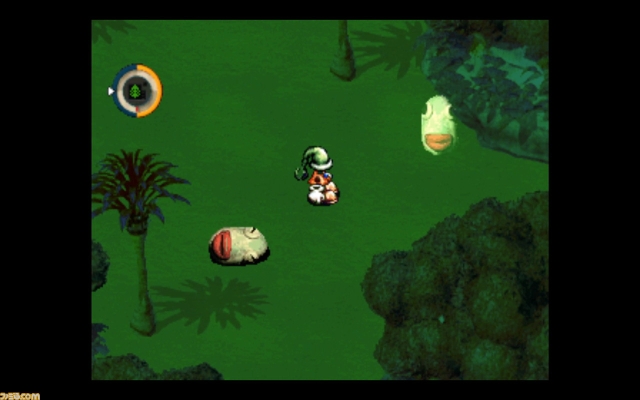
Dead in the bottom-left of the screen is Tommy. To think those striking lips were something Kimura-san made out of clay... And in the top-right is Tommy's restless soul...!
Kurashima: And as for the animals appearing on each map... We'd line up all the dolls everyone made, and everyone could take whichever they liked to use as they wished.
Kimura: Nothing was set in stone, so I had to research the animals everyone had placed willy-nilly, count the amount of Love you could obtain, and calculate about how much of a Love Level you'd need throughout the entire game. All after the fact. (laughs)
— And in doing that, you saw how the game as a whole connected?
Kurashima: I think Yoshi-chan made the body of the story. Yoshi-chan, you said it yourself, but in a way it felt like we couldn't let loose at all in our time at Square. However, at Love-de-Lic, I felt we were making the story freely and casually. Oh yeah, now that I think about it, while at Square, Yoshi-chan would make and perform one-man plays, and I helped him by drawing art for them.
Kimura: I asked for pamphlet art and such. Thinking of it that way, Kurashima's been looking at my stories ever since the Square days. (laughs)
Kurashima: I even watched your plays at the time, and it occurred to me that their "flavor" wasn't being exhibited in your games at Square. And that it did show itself when making Moon.
Kimura: Nishi-san, Taro-chan, Kurashima, and everyone wrapped us in an environment of "hey, do things freely," and I think I wouldn't have returned to making games if I hadn't wound up experiencing that. I'm truly grateful for my colleagues inviting me then.
— It truly does sound like it was a "jazz performance" sort of development studio. (laughs)
Kimura: That development studio showed me how the most important thing in games isn't specifications, but adlibbing. It was that kind of world. If I talked like this at game studios now, other developers might get scared, but I'm saying that if you just face ahead and work alone, without any need for specifications, you'll reach the goal! ...Man, but I could never make a game now without any planning. (laughs)
You can't see the backside of the moon from Earth.
The sudden news of Moon's release on Nintendo Switch, truly like the backside of the moon, is something that everyone at Onion Games has been steadily building up to in places unseen.
As if to answer the years of prayers from fans, Moon will be returning. Just what kind of game will Moon be upon its revival? I'll leave it to Kimura to answer that question:
"You're free to think of this Nintendo Switch version as being utterly the same Moon as it always was. Just what kind of game was Moon... or how rough a game was it? That, you'll get to see for yourself. For those who know this game and those who don't, I hope you'll please give it a try."